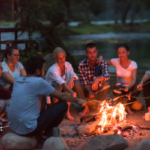TUITION
At AAA Learning Institute, we offer three Oregon Facilitator Programs. Our programs are licensed by the Oregon Higher Education Commission & Oregon Health Authority.

Our Oregon Facilitator programs provide comprehensive training and hands-on experience, equipping students to become certified facilitators. Live online classes are M W F from 6p.m. – 8p.m. Practicum is in person on a Saturday-Wednesday from 9a.m. – 5p.m. at our school in Eugene, OR. HECC License pending.
Standard Oregon Facilitator Program – 162 Hours (11 Weeks)
- Tuition: $3,995
- Registration Fee: $0
- Fees: $0
- Books, Materials, and Supplies: $0
- Practicum: $0 (Included)
- Program Includes: Self-paced online, Live online, and In-person practicum.
- Payment Options: 3rd Party financing available with payments as low as $346/mo
Distance Education Oregon Facilitator Program – 162 Hours (11 Weeks)
- Tuition: $3,995
- Registration Fee: $0
- Fees: $0
- Books, Materials, and Supplies: $0
- Practicum: $1,000 (Can be scheduled separately in a different cohort)
- Discount: $1,000 off if practicum is deferred to a later cohort. This accommodates travel needs. The discount will be paid on the adjusted schedule.
- Program Includes: Self-paced online learning, live online classes with practicum optional to be scheduled in a later cohort.
- Payment Options: 3rd Party financing available with payments as low as $260/mo
Accelerated Oregon Facilitator Program – 6 Weeks
- Tuition: $3,995
- Registration Fee: $0
- Fees: $0
- Books, Materials, and Supplies: $0
- Practicum: $0 (Included)
- Program Includes: With proper proof provided, you are awarded accelerated training hours. The hours awarded will not exceed 40% of the total number of core training hours. Self-paced online, live online, and in-person practicum.
- Payment Options: 3rd Party financing available with payments as low as $346/mo
Secure Your Seat Today
Winter Cohort begins January 6, 2025 (Application Deadline is December 22, 2024).
Curriculum Overview
Program Breakdown
Our programs blend self-paced learning, live online sessions, and in-person practicum to provide students with the necessary skills for facilitation. Each section below outlines key modules and learning outcomes.
Curriculum Modules
OPF101: Historical, Traditional, and Contemporary Practices and Applications
- Total Hours: 12 (6 live, 6 self-paced)
- Topics Covered:
- Current and historical use of plant and fungal medicines in indigenous and western cultures.
- The Controlled Substances Act and its effect on research and drug policy.
- Overview of historical and recent academic research.
OPF102: Pharmacology, Neuroscience, and Clinical Research
- Total Hours: 4 (2 live, 2 self-paced)
- Topics Covered:
- Pharmacodynamics and pharmacokinetics.
- Drug and supplement interaction.
- The metabolism & concentration of products.
- The primary effects and mechanisms of action of plant medicine on the brain, including connectivity in the brain and activation of serotonin receptors.
- Key areas of research.
- Models of substance use, addiction, and recovery.
OPF103: Core Facilitation Skills
- Total Hours: 16 (8 live, 8 self-paced)
- Topics Covered:
- Client communication, empathy and rapport, including a nondirective facilitation approach, cultural attunement and a nonjudgmental disposition.
- Response to psychological distress and creating a safe space for difficult emotional experiences.
- Physical reactions and side effects.
- Trauma informed care, including physiology of trauma, vicarious trauma, empathic stress and compassion fatigue.
- Active monitoring of client-facilitator boundaries specifically boundaries related to consent and touch.
- Identification and facilitation of a variety of subjective experiences, including experiences relating to physiological sensations, cognitive, emotional, mystical states, and traumatic memories.
- Appropriate modes of intervention, understanding when intervention is necessary, and when a client may need a higher level of care.
- Recognizing and addressing adverse behavioral reactions and adverse medical reaction.
- Identification of the unique health, psychological and sociocultural presented by persons with terminal illness; and awareness. of the appropriate knowledge, skills and approach needed to provide safe facilitation to such persons in a manner consistent with client goals, values, heritage, and spiritual practices.
OPF104: Group Facilitation
- Total Hours: 16 (8 live, 8 self-paced)
- Topics Covered:
- Skills required to facilitate group sessions, including, but not limited to:
a.) Assessing client’s compatibility with group format;
b.) Set and setting for group facilitation;
c.) Facilitating group communications and dynamics, including, strategies for working with multiple facilitators;
d.) Group agreements, including confidentiality and safety;
e.) Identifying when a client within a group requires individual support, removal from a group, or additional intervention. - Group Preparation Sessions.
- Group Integrations Sessions.
- Regulatory requirements for group facilitation.
- Skills required to facilitate group sessions, including, but not limited to:
OPF105: Cultural Equity in Relation to Services
- Total Hours: 12 (6 live, 6 self-paced)
- Topics Covered:
- Cultural equity, its relationship to health equity and social determinants of health.
- Racial justice, including the impact of race and privilege on health outcomes and the impact of systemic racism on individuals and communities.
- The impact of drug policy on individuals and communities.
- History of systemic inequity, including systemic inequity in delivery of healthcare, mental health, and behavioral health services.
- Intergenerational trauma.
- Responsible Referral and Support.
OPF106: Safety, Ethics, and Responsibilities
- Total Hours: 12 (6 live, 6 self-paced)
- Topics Covered:
- Awareness of facilitator’s personal bias, including examination of facilitator’s motives.
- Training on the Oregon P. Services Act and related laws, regulations and professional standards for facilitators; including facilitator scope of practice and expectation of referral when scope of practice is exceeded.
- Training in ethical issues related to facilitation, including:
a.) Oregon’s Facilitator Code of Ethics;
b.) Ethical considerations relating to equity, privilege, bias and power;
c.) Awareness of increased vulnerability associated with altered states of consciousness;
d.) Appropriate use of touch and client consent to physical contact;
e.) Appropriate emotional and sexual boundaries between facilitators and clients both during provision of services and at other times, potential harm to clients and consequences for facilitators of breaching those boundaries;
f.) Historical and contemporary abuse of power associated with holistic health practices, including sexual boundaries between facilitators and clients both during provision of services and at other times, potential harm to clients and consequences for facilitators of breaching those boundaries;
g.) Financial conflicts of interest and duties to clients;
h.) Reasonable expectations regarding client outcomes. - Accurate record keeping and client confidentiality.
- Awareness of new research related to safety and ethics of providing services and services and resources for professional development following program completion.
- Appropriate measures to mitigate risks associated with services, including harm reduction, de-escalation, and conflict resolution.
OPF107: Preparation and Orientation
- Total Hours: 16 (8 live, 8 self-paced)
- Topics Covered:
- Informed consent.
- Client information form and intake interview, including discussion of client’s reasons for seeking psilocybin services.
- Using the client information form to assist clients in identifying benefits of referral to specialized treatment services.
- Facilitator role and the limits of facilitator’s scope of practice.
- Trauma informed communication skills.
- Identification of client safety concerns, including medical history, contra-indicated medication and psychological instability.
- Appropriate strategies to discuss client safety concerns, including but not limited to identification of client’s support system.
- Determination of whether a client should participate in an administration session.
- Client directed safety planning to address identified safety concerns.
- .Boundaries between the facilitator and the client including use of touch
- Understanding of how racial and cultural dynamics affect interactions between client and facilitator.
- Historical and indigenous modalities of preparation.
OPF108: Administration
- Total Hours: 20 (10 live, 10 self-paced)
- Topics Covered:
- Dosing strategies and considerations, including:
a.) Experiential differences relating to differing dosages;
b.) Physiological considerations in relation to dosage;
c.) Delivery mechanisms of psilocybin;
d.) Use of secondary doses. - Effectively working with challenging behaviors during an administration session, including:
a.) Unexpected client disclosures;
b.) Substance-induced psychosis;
c.) Suicidality. - Traumatic stress and its manifestation during a psilocybin experience and appropriate facilitator response, including:
a.) Trauma’s relationship to the body;
b.) Repressed trauma emerging during a psilocybin experience;
c.) Trauma and traumatic stress resulting from systemic oppression;
d.) Safety for trauma resolution and risks associated with retraumatization;
e.) Protocols for ensuring facilitator safety and responding to emergencies. - “Set and Setting” including environmental considerations for administration session such as lighting, sound and temperature.
- Completion of administration session.
- Dosing strategies and considerations, including:
OPF109: Integration of Experiences
- Total Hours: 12 (6 live, 6 self-paced)
- Topics Covered:
- Identification of appropriate resources that may assist client with:
a.) Interpreting feelings and emotions experienced during administration session;
b.) Facilitation of positive internal and external changes;
c.) Enhancement of existing supportive relationship. - Identification of client safety concerns.
- Facilitator scope of practice.
- Discussion of appropriate intervals between administration sessions and related safety concerns.
- Identification of appropriate resources that may assist client with:
OPF110: Practicum: In-Person Training
- Location: 207 E. 5th Ave, Ste 262, Eugene, OR
- Total Hours: 40
- Topics Covered:
- Practicum activity as described:
a.) Observation of taped facilitation sessions that were recorded with participants’ consent;
b.) Participating in peer support organization;
c.) Role playing;
d.) Experience with altered states of consciousness that are not drug-induced, for example breath work, meditation or spiritual journeys. - Consultation relating to the student’s direct practice:
a.) Case Review and Feedback:
Individual Case Studies: Reviewing specific cases of facilitation sessions, discussing the techniques used, outcomes, and areas for improvement.
Group Discussions: Facilitating group discussions where students can share experiences and insights from their direct practice, fostering a collaborative learning environment.
b.) Supervision and Mentorship:
One-on-One Supervision: Providing personalized supervision sessions where experienced facilitators offer guidance and feedback on the student’s practice.
Peer Supervision: Encouraging peer-to-peer supervision sessions where students can support and learn from each other under the guidance of a mentor.
c.) Best practices in facilitation to ensure the safety and well-being of participants.
d.) Risk Management: Training on identifying and managing risks associated with experiences, including crisis intervention techniques.
e.) Integrative Techniques:
Integration Sessions: Teaching students how to conduct integration sessions to help participants process and integrate their experiences.
Holistic Approaches: Exploring various holistic and complementary practices that can support the integration process, such as counseling, art therapy, and somatic practices.
f.) Professional Development:
Reflective Practice: Encouraging students to engage in reflective practice to continually assess and improve their facilitation skills.
g.) Cultural Competency:
Cultural Sensitivity Training: Educating students on the importance of cultural sensitivity and inclusivity in facilitation.
Working with Diverse Populations: Training on how to adapt facilitation techniques to effectively support participants from diverse backgrounds and with different needs.
h.) Practical Skills Enhancement:
Skill-building Workshops: Offering workshops to enhance specific skills relevant to facilitation, such as active listening, empathy, and nonverbal communication.
Role-Playing Feedback: Providing feedback on role-playing exercises to help students refine their practical skills in a simulated environment.
- Practicum activity as described:




